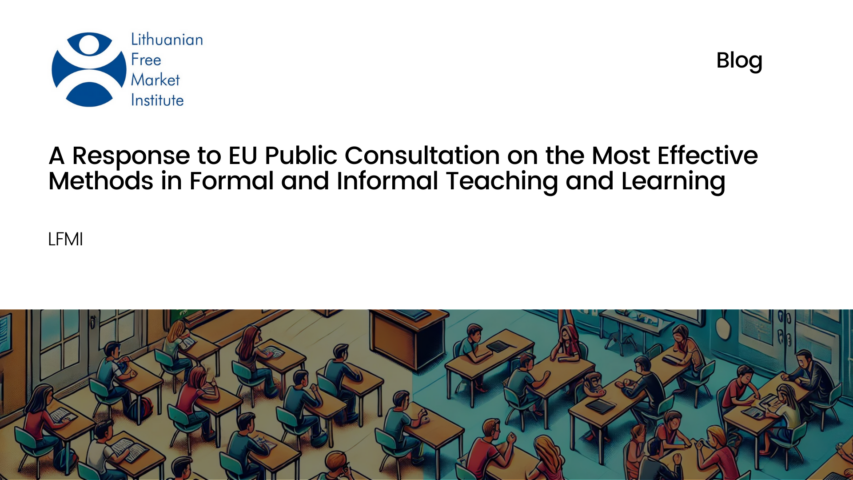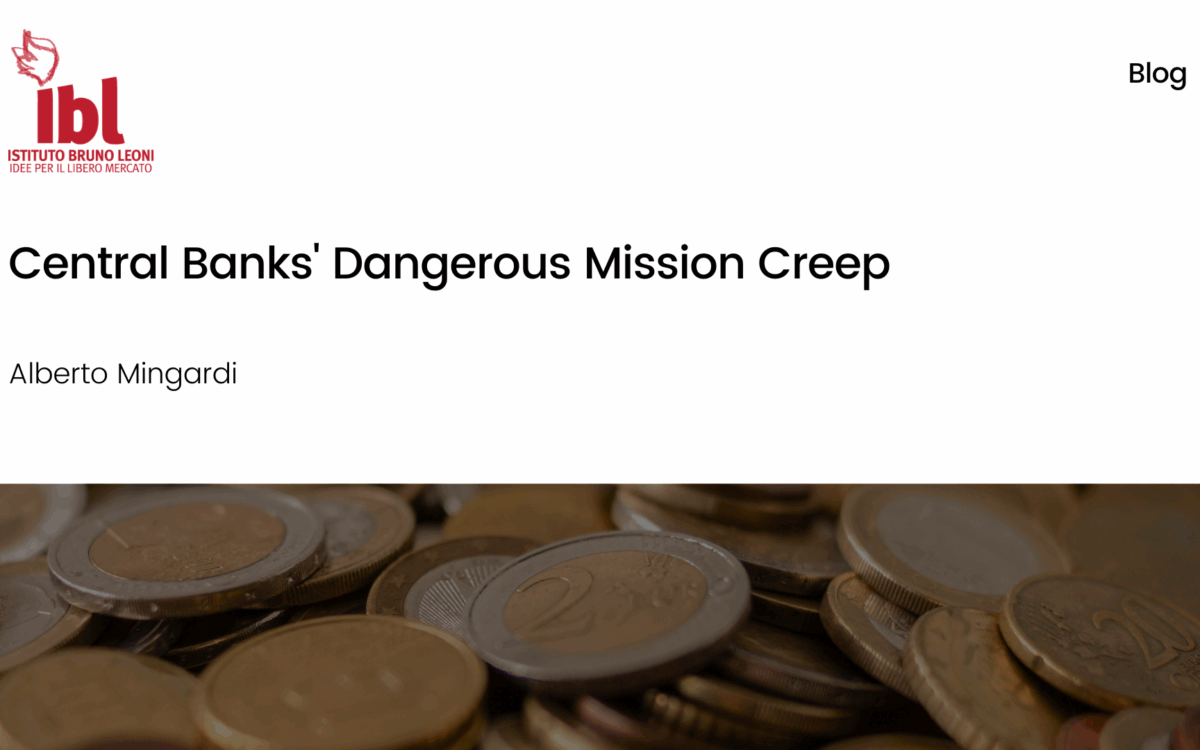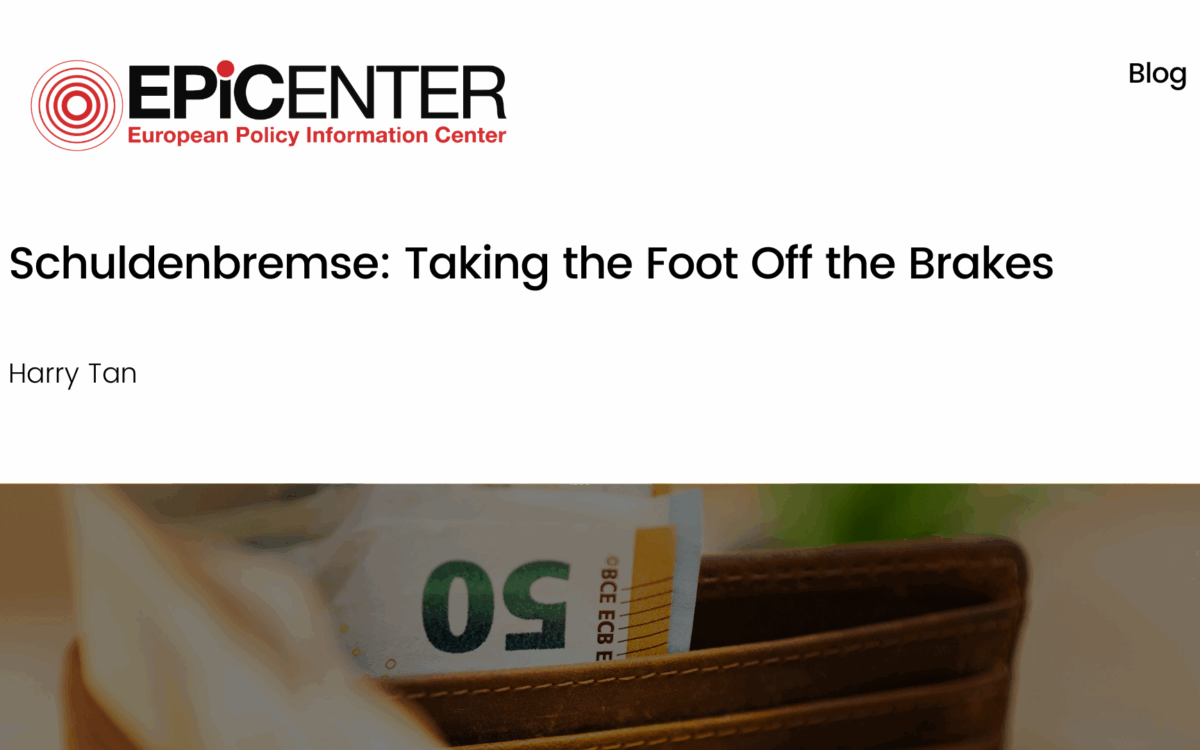A Response to EU Public Consultation on the Most Effective Methods in Formal and Informal Teaching and Learning

A Response to EU Public Consultation on the Most Effective Methods in Formal and Informal Teaching and Learning
Lithuanian Free Market Institute // 31 August 2017
The European Commission sought public opinion on the importance of equipping young people with shared values and on how education and non-formal learning can help achieve this aim in view of creating more socially cohesive societies. In response to this call and based on its work in developing integrated social education, the Lithuanian Free Market Institute submitted its position on the most effective methods in formal and informal teaching and learning.
In LFMI’s view, the development of an in-depth understanding of the European values as well as individual responsibility among young people rests upon raising their social awareness and the advancement of critical thinking on social phenomena. A proper account for social reality requires an integration of economic, political and moral perspectives.
Social awareness is the ability to understand societal processes, the interrelations between them and their effects on oneself, others and the world. It could hardly be argued that poverty, consumerism, labour, pollution, inequality, health, migration, social networking, elections and propaganda are the topics everyone is confronted with. These realities include problems that need to be addressed from different perspectives. First, people take a personal perspective by, for example, asking the question of how can I help the poor. Other solutions are being sought out in society or a global approach is taken. Is it possible to eliminate poverty? Why does hunger still exist? These and numerous other issues are widely explored in various fields, from the media to academic discourse, presenting different and usually conflicting opinions. Critical and independent thinking is the key weapon in such context of diverse information and opinions.
Critical thinking about social problems should be encouraged and taught in schools; especially in upper secondary schools, when realities become important on a personal level, when pupils need to understand them in order to make responsible decisions and contribute to the overall solution of the problem. Educational principles instrumental in raising social awareness and encouraging critical thinking are as follows: discussion; understanding human beings to be the central figures of social processes; active participation in public initiatives; ability and reflective learning oriented education, where the teacher acts as a guide, a facilitator, and the progress is measured by means of self-evaluation.
Main subjects focusing on the understanding of social phenomena are civic education, ethics and economics. Knowledge of civil society, politics, law and history is closely related to economic logic and values play an important role in the understanding and evaluation of social phenomena; therefore, integration the three subjects helps in getting to the root of the problem. That is why the Lithuanian Free Market Institute undertook to improve the quality and relevance of economics, ethics and citizenship education in upper secondary schools in the Baltic States by developing and advancing an innovative model, methodological guidelines and interactive ICT-based teaching and learning resources for integrated teaching of economics, civic and ethical education. In doing this, LFMI partners with leading teacher training institutions, universities and schools from Lithuania, Latvia, Estonia and Finland.
This blog post appeared first on the Lithuanian Free Market Institute’s website.
EPICENTER publications and contributions from our member think tanks are designed to promote the discussion of economic issues and the role of markets in solving economic and social problems. As with all EPICENTER publications, the views expressed here are those of the author and not EPICENTER or its member think tanks (which have no corporate view).



